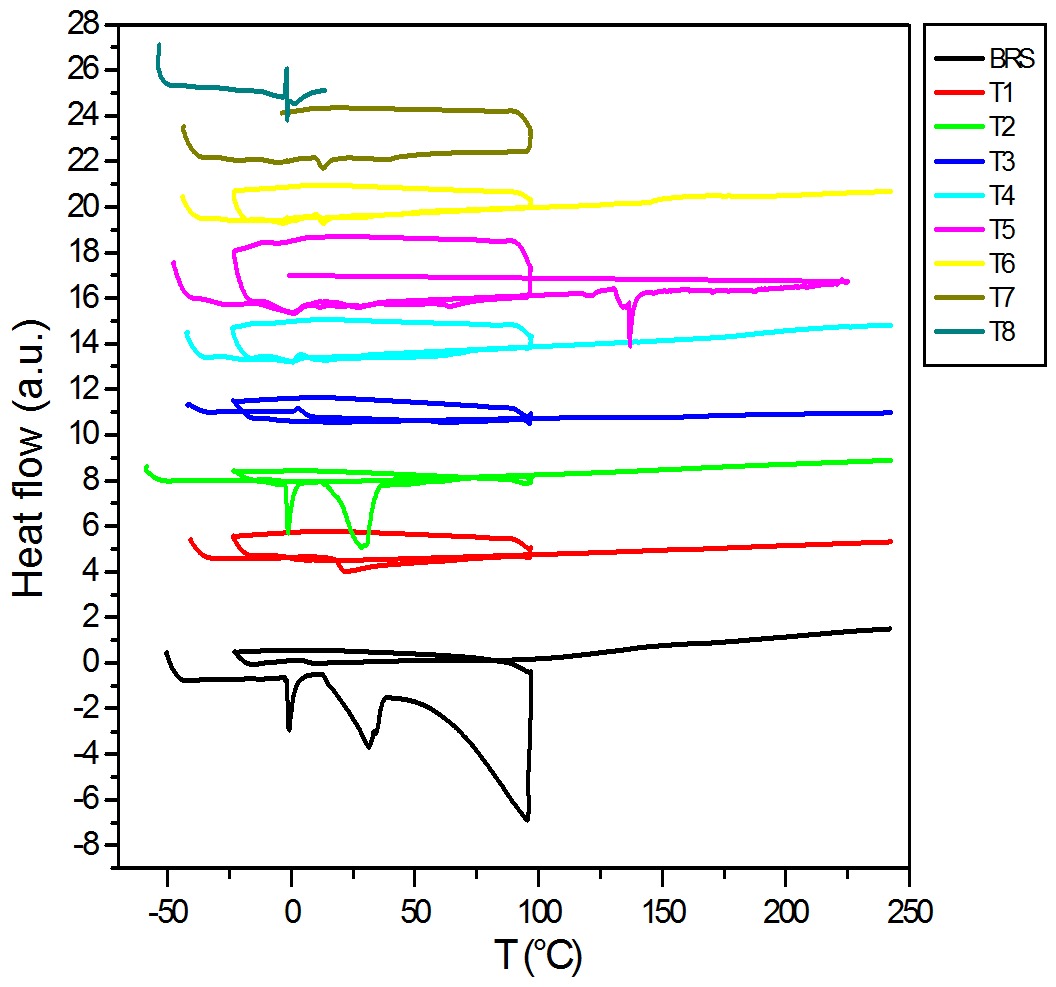Abstract
Polyphenolic resol resins were obtained from an ethanolic extraction of green plantain peels (Musa paradisiaca) grown in Colombia. A synthesis was then performed by polycondensation in an alkaline pH solution in order to perform research on phenolic resin production with high mechanical performance. The polymers were characterized by DSC and TGA analyses and the resins showed a melting point of 94 °C and the typical properties of resol resins. Moreover, the synthesis was controlled using the infrared technique (FTIR) where different organic functional groups present in the polymers obtained are observed. The obtained resins were used as heavy metal adsorbents in which the content of those toxic agents is measured by Atomic Absorption Analysis (AA) indicating that these resins have a high retention affinity to Pb+2, Ni+2 and Cr+3 (79.01%, 98.48%, 94.14%, respectively) as determined by Freundlich isotherms.
Keywords:
resol resins; differential scanning calorimetry; infrared spectroscopy; thermogravimetry; freundlich isotherms; toxic heavy metal adsorbents

 Thumbnail
Thumbnail
 Thumbnail
Thumbnail
 Thumbnail
Thumbnail
 Thumbnail
Thumbnail



